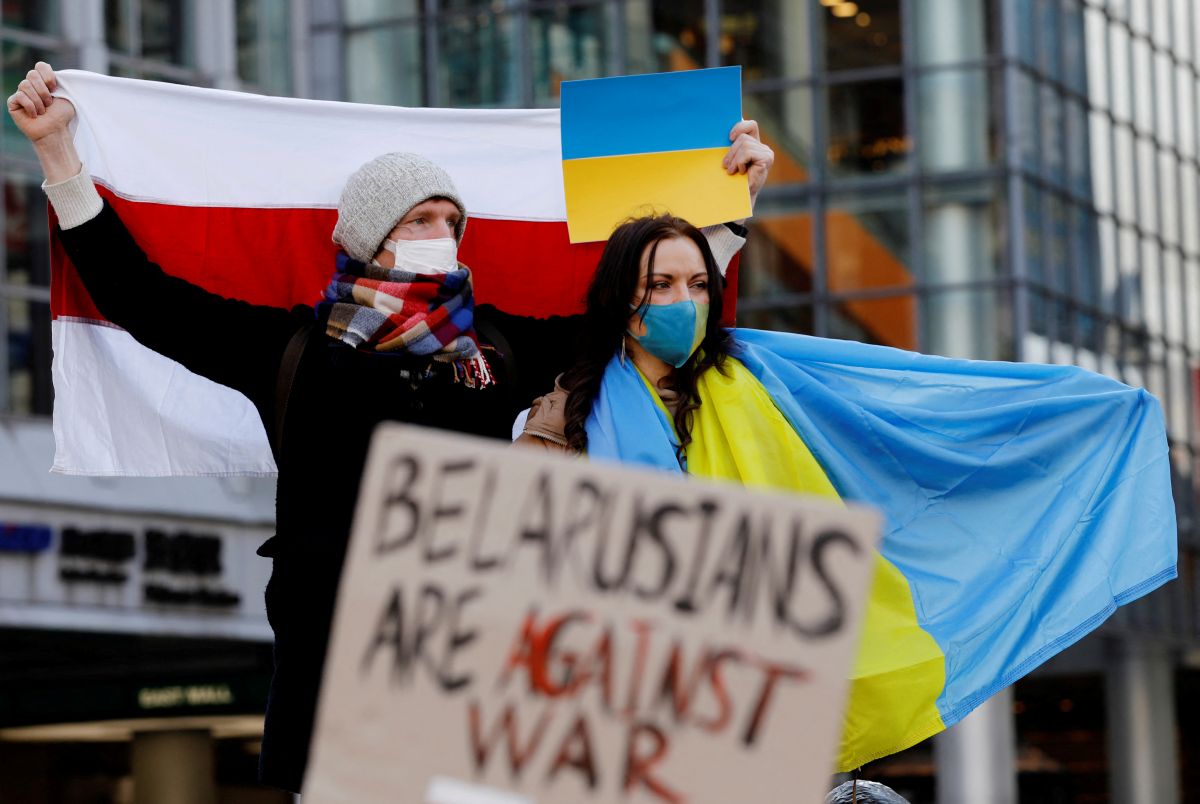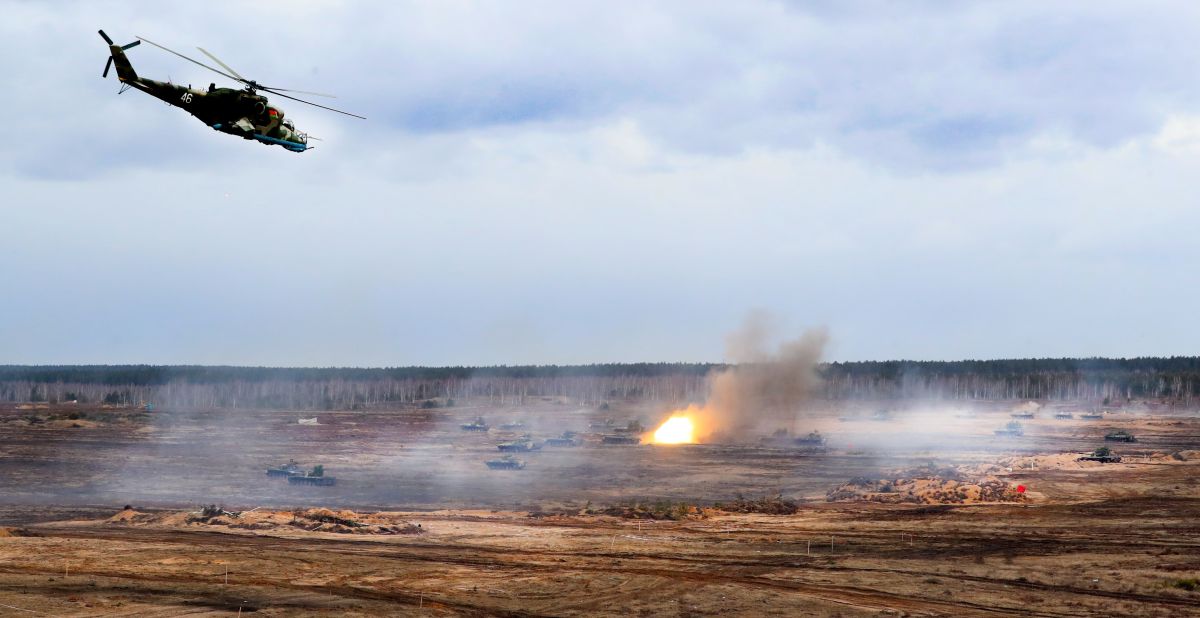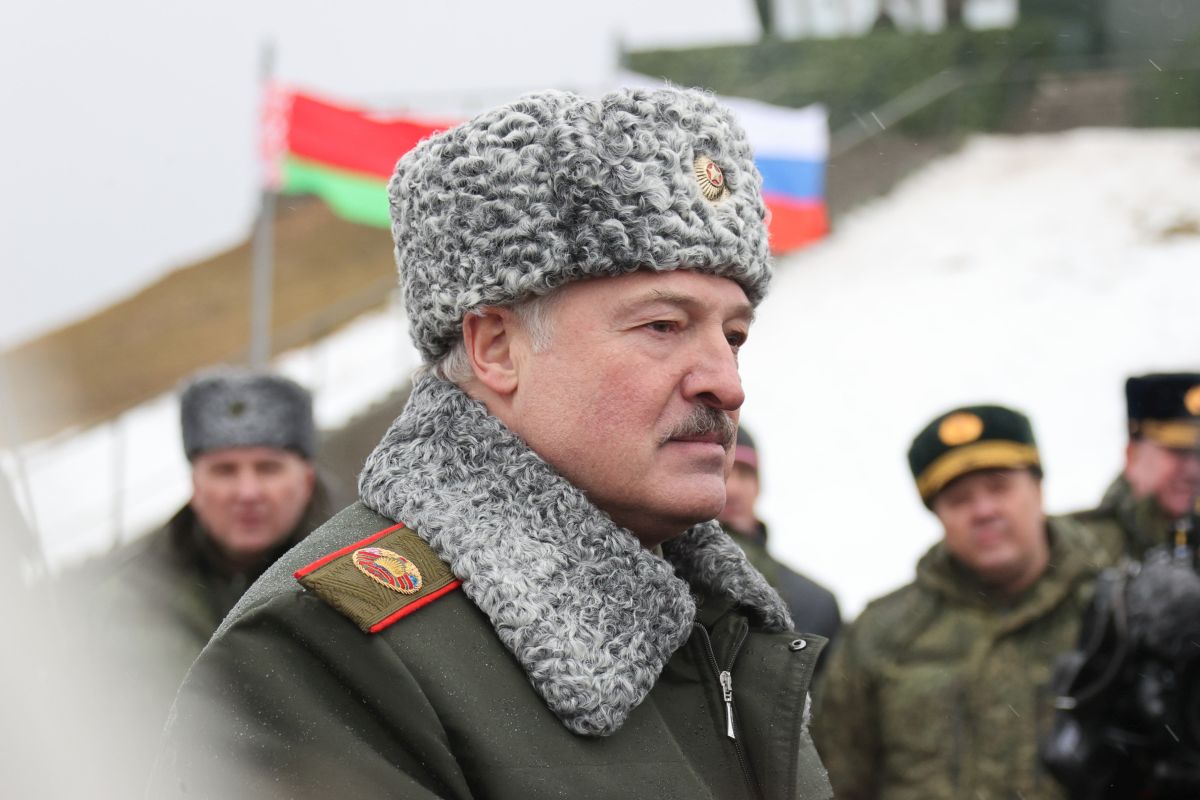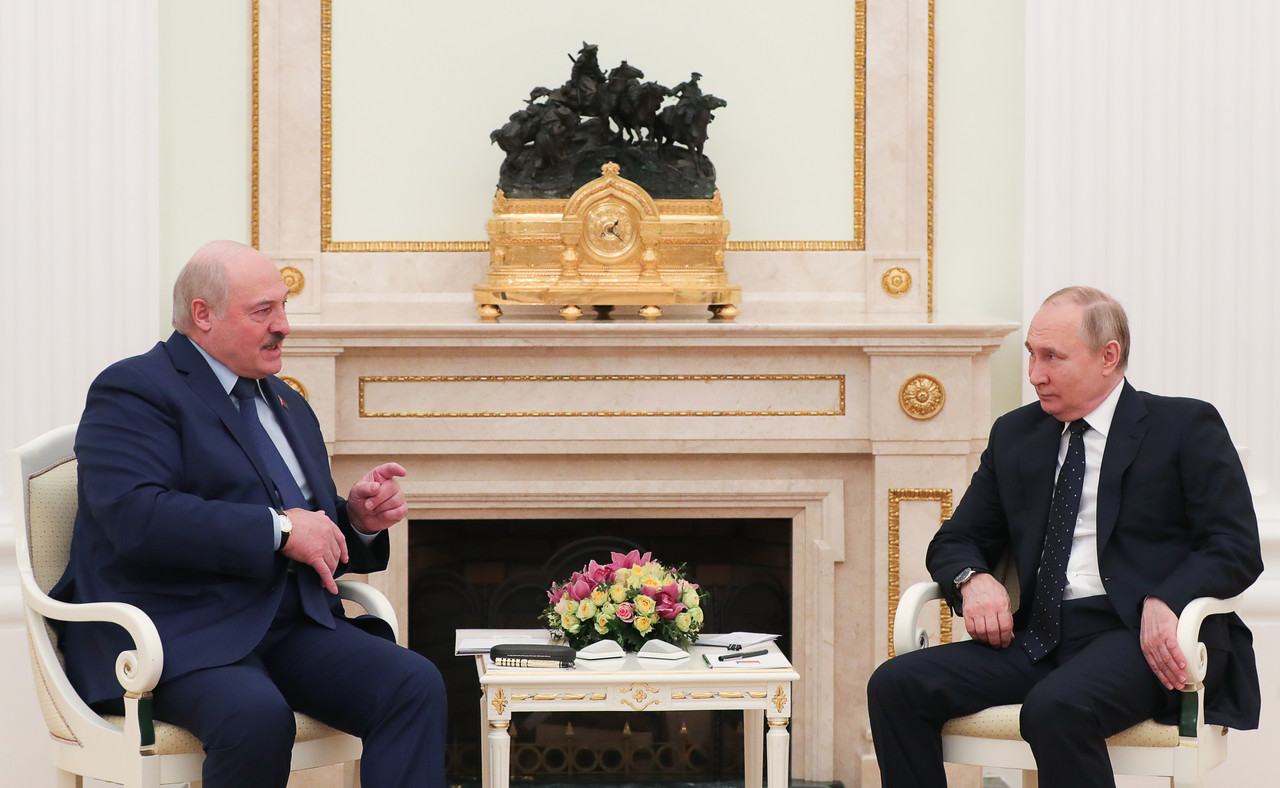The Situation in Belarus in the Context of the Russian Invasion of Ukraine
Belarus’s participation in the Russian invasion of Ukraine will have significant consequences, including further international isolation and exacerbated economic problems. Although the Belarusian government will not change policy in the short term, these factors may significantly affect it over a longer period. EU countries, including Poland, should continue their policy of maintaining sanctions on Belarus while supporting civil society.
 KIM KYUNG-HOON/ Reuters/ FORUM
KIM KYUNG-HOON/ Reuters/ FORUM
Belarusian Support For the Russian Aggression
Even before the start of the Russian invasion of Ukraine on 24 February, Belarus made its territory available to Russian troops, mainly from the 35th and 36th Combined Arms Armies of Russia’s Eastern Military District (MD). Officially, the Russian units arrived to Belarus on the pretext of checking the combat readiness of the Union State’s forces and for the Allied Resolve exercise. After the manoeuvres, they remained in Belarus, from where the offensive aimed at capturing Kyiv was launched. The Belarusian side also provided the Russian forces with a rear guard, mainly in the form of the treatment of the wounded, provision of supplies and logistics, as well as air protection in Belarus.
However, Belarusian ruler Alexander Lukashenka decided not to directly participate in the armed operations in Ukraine, fearing protests. A decision to invade would have lowered his support, currently estimated at no more than 25%. Chatham House reported that 97% of surveyed Belarusians were against their countries’ participation in the fighting. Lukashenka also did not want to take responsibility for any victims of Belarusian soldiers, which could undermine his position in the power structures, which are now the key internal guarantor of his regime’s survival. Plus, the relatively low combat capability of the Belarusian military was significant in his decision. According to publicly available statistics (i.e., The Military Balance), although it has 45,500 active-duty troops, only about 10,000 are maintained at a sufficient level of readiness to undertake operational activities. Moreover, a significant number of those ready to fight had taken part in the Allied Resolve manoeuvres, which weakened their combat potential through worn equipment and spent munitions and fatigue from combat exercises on the winter training grounds.
After the invasion, acts of sabotage to block the Russian military took place in Belarus, mainly consisting of attempts to derail trains with military equipment. As a result, the Belarusian services detained at least a few people, including railway workers. If the acts committed by them are classified as an act of terror, the detainees face the death penalty. What is more, Belarusians are involved in fighting on the side of Ukraine, forming volunteer units there and joining the territorial defence forces. The most famous of these is the Kastuś Kalinoŭski Battalion, which became a part of the Ukrainian armed forces. Its troops took part mainly in military operations in the vicinity of Kyiv. Their declared goals are to fight not only for the independence of Ukraine, but in the longer term, for Belarus. The leader of the Belarusian opposition, Sviatlana Tsikhanouskaya, also points out that Russia’s defeat in Ukraine, besides weakening the Russian state, will give a chance for the democratisation of Belarus.
Political Situation
Since the elections in August 2020, the Belarusian government has unleashed a spiral of repression against its own citizens (according to the Human Rights Centre Viasna, 1,127 people have the status of political prisoner), civil-society institutions and independent media. Almost all independent organisations have ceased activity and some of them are operating only from outside Belarus. The constitutional referendum on 27 February and earlier public consultations on amendment of the constitution did not even have the appearance of a democratic process. The most important constitutional changes are the declared abandonment of Belarus’s status as a non-nuclear state and the introduction of a new governing body, the All-Belarusian People’s Assembly. The introduction of this institution into the regime’s system can, however, be considered only a partial fulfilment of the expectations of the Russian authorities, which after the 2020 elections demanded a reduction in the president’s powers and increasing the role of the parliament, including the influence of pro-Russian parties. The latter, however, would be a significant change in the political system of Belarus, hence the resistance from the Belarusian authorities, which since 2000 have not granted consent to the registration of even one new political party.
Economic Situation
The World Bank estimates that this year the Belarusian economy may shrink by 6.5%, while the forecasts of independent Belarusian economists indicate that the decline in GDP may amount from 15% to around 20%, and exports will decline by a third. For comparison, in 2021 GDP growth amounted to 2.3%, and in 2020 it decreased by 0.9%. The reason for the sudden change is the sanctions imposed mainly by the EU and the U.S. on Belarus because of its internal policy and its aggression against Ukraine. Combined, these sanctions may reduce the country’s GDP by 6-8%, in addition to the severe contraction of the Russian economy because of Western sanctions. Inflation is also expected to rise from 21% (World Bank estimate) to 40% (independent economists) as well as registered unemployment to 8% (currently it is around 4%).
Due to the war in Ukraine, Belarus is losing its most important trade partners: in 2021, 23.9% of its exports was sent to EU countries, and 13.6% to Ukraine. Due to Western sanctions introduced in 2020, Belarus’s income from the sale of weapons also decreased in 2021. In 2018, the volume of arms exports was equivalent to 2.1% of GDP (according to World Bank data, Belarus’s GDP was then $60 billion). Moreover, the loss of revenues from the most profitable sectors—mainly the production of fertilisers and petroleum products—due to restrictions imposed in connection with Belarus’s participation in the aggression against Ukraine will, according to official estimates, amount to at least 10% of the assumed revenues for 2022 (about $840 million). One additional consequence of Belarus’s involvement in the war in Ukraine is that international rating agencies have lowered the country’s rating to a level indicating that it is on the verge of solvency.
Conclusions and Recommendations
Due to the military situation in Ukraine and the withdrawal of Russian troops from the north of that country, as well as the opposition of Belarusian society and further international consequences for Belarus, the involvement of the Belarusian Armed Forces in the fighting is probably not being considered. However, Belarus will continue to play an important role in Russia’s policy towards NATO and Ukraine. Russia maintaining a military contingent in its neighbour will not only pose a constant threat to northern Ukraine, including Kyiv, which will force its authorities to leave some forces there that otherwise could fight Russia in the east of the country, but in the long run will change the balance of power in the region. If Russia leaves troops in Belarus, a decision not settled before the war in Ukraine, will strengthen Russian control over Belarus and will prevent its authorities from pursuing independent foreign and security policy, including in particular a broader dialogue with Western countries. Belarus also will be increasingly, and on a larger scale, used by Russia to conduct hybrid operations against EU and NATO countries, especially those on the Eastern Flank. It also may be used as an intermediary in cyberattacks or attempts to destabilise areas near the border with NATO countries.
However, the deepening dependence of Belarus on Russia and the deteriorating economic situation will not cause the Belarusian government to change its policy even in the medium term (2-3 years). Due to the high level of intimidation of the public, widespread protests are also unlikely. In the longer term, however, this situation may change, mainly because of the rise in significant discontent or from possible changes in Russia itself, which may not be able to sufficiently back the Belarusian regime politically and financially.
Thus, in addition to maintaining the sanctions policy, the EU and other Western countries should continue to consistently implement the policy of support for civil-society institutions and Belarusian political emigration. It also will be crucial to ensure access to independent information, including through social media such as Telegram, concerning the policy of Western countries, which also should be directed via Russian-language media to Russian society.





